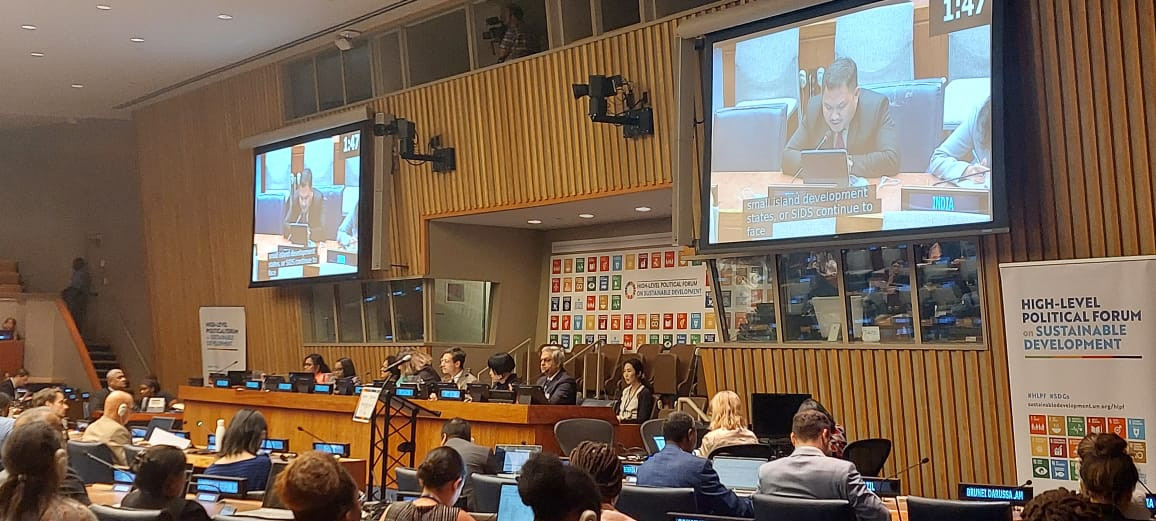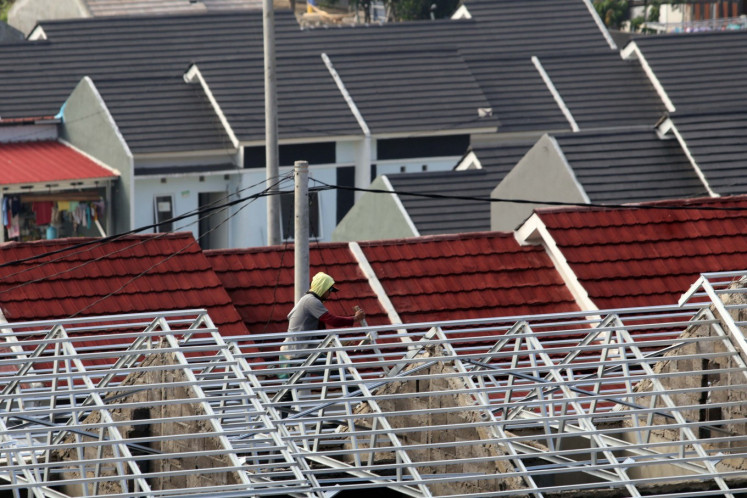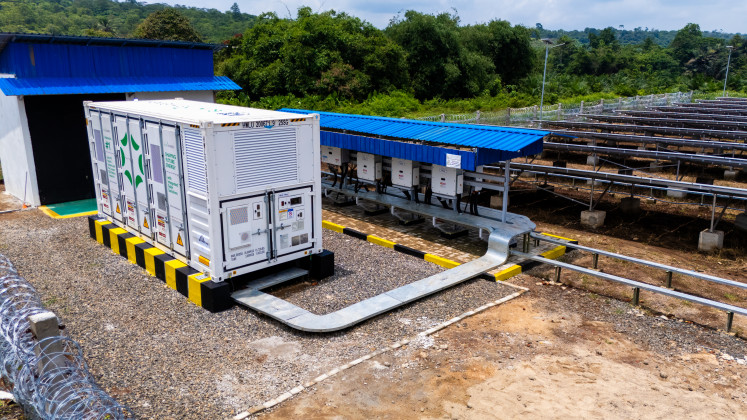Popular Reads
Top Results
Can't find what you're looking for?
View all search resultsPopular Reads
Top Results
Can't find what you're looking for?
View all search resultsIndonesia leads archipelagic countries’ partnership for disaster mitigation
Indonesia’s location in the ring of fire makes it vulnerable to natural disasters. A global risk analysis conducted by the World Bank ranks Indonesia 12th out of 35 countries facing a relatively high mortality risk from multiple hazards.
Change text size
Gift Premium Articles
to Anyone
I
ndonesia’s location in the ring of fire makes it vulnerable to natural disasters. A global risk analysis conducted by the World Bank ranks Indonesia 12th out of 35 countries facing a relatively high mortality risk from multiple hazards. The number of natural disasters that affect people has only increased as a result of the climate crisis.
Recognizing the high risks of development as an archipelagic country, Indonesia intends to build solidarity among archipelagic developing countries around the world through the pillars of collaboration on disaster mitigation, global financing mobilization and sustainable financing.
Ivanovich Agusta, who heads the Development and Information Agency of the Villages, Disadvantaged Regions and Transmigration Ministry, conveyed Indonesia's message at the Small Island Developing States (SIDS) session on Tuesday (11/07) during the High-Level Political Forum on Sustainable Development 2023 at the United Nations Headquarters in New York, the United States.
The SIDS session was attended by delegates from 196 countries. On this momentous occasion, Indonesia had an opportunity to present its successes in meeting its Sustainable Development Goals (SDGs) from the national to the village levels in a seminar entitled “Driving Changes at the Local Level: Innovative Approaches to Localize the SDGs”.
“SIDS continues to face significant challenges in strengthening [their] resilience to shocks. Among them [are] limited financial resources, and vulnerability to external economic shocks. For the rest, complex social, economic and environmental vulnerabilities arise,” Ivanovich said.
As an archipelagic country, Indonesia recognizes the importance of collective action by the international community to support SIDS, such as increasing partnerships to boost resilience to natural disasters. To achieve this requires investing in early warning systems and improving infrastructure to deal with extreme weather. The global community also needs to provide training and capacity building programs to respond to and recover from disasters.
Meanwhile, infrastructure development must run in parallel with the sustainability transformation. This includes soft financing as well as facilitating public-private partnerships for investment in key sectors.
There is also a need for capacity building programs and knowledge sharing initiatives to empower SIDS with a view to developing sustainable solutions, which can be facilitated by cross-country cooperation on all levels.
“For years, Indonesia has been working with SIDS. Through the Island and Archipelago Country Forum, for example, we collaborate to promote the blue economy and good maritime governance. This is a development solution in tackling climate change and marine plastic waste,” Ivanovich added.
He continued that various preparations ahead of the 2023 SDG Summit in September would actually provide momentum toward heightening global solidarity and cooperation, and provide a platform for member states to set the agenda for next year’s fourth International Conference on SIDS, or SIDS4. This agenda is expected to highlight priority areas and emerging challenges, as well as focus on members’ most pressing problems. SIDS4 should also identify solutions that can be adobted by all island and archipelagic states.
Furthermore, the SDG Summit should also facilitate partnerships to support the sustainable development of SIDS, by inviting the participation of various stakeholders, including governments, international organizations, civil society and the private sector.
"Indonesia looks forward to working with SIDS and the international community to advance our development agenda," said Ivanovich.
This article was published in collaboration with Ministry of Village, Development of Disadvantaged Regions and Transmigration











